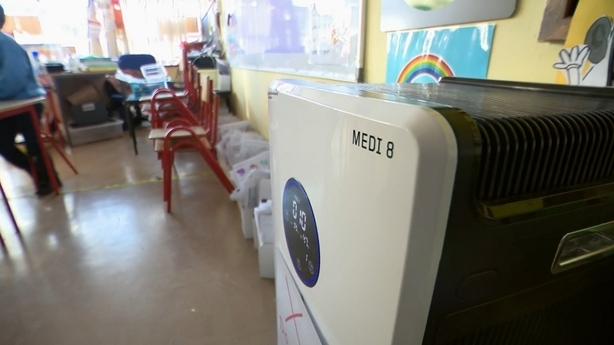The current wait period for a vaccine following recovery from Covid-19 is to be shortened from six to three months for those who are fully vaccinated.
Minister for Health Stephen Donnelly said he has accepted the revised advice from the National Immunisation Advisory Committee.
NIAC recommended that the interval between the primary vaccine series and booster dose for those who have had a breakthrough infection be reduced to three months. Prior to this, the interval was six months.
An infection is classed as "breakthrough" where the person is fully vaccinated against coronavirus.
Minister Donnelly said: "I welcome this update to our booster vaccination programme.
"Decreasing the interval for booster doses in those who have had a breakthrough infection is an important step given Ireland's current epidemiological situation."
Earlier, the Taoiseach said he recognised the anxieties that people have about any delays in getting the third shot as the Omicron strain is highly transmissible.
In relation to easing the latest restrictions next month, Micheál Martin said the key criteria are the general health of the population and protecting public health and lives
''We still need more comprehensive data in respect of Omicron and the degree to which high numbers of cases will convert into hospitalisations," he added.
The Taoiseach has said Ireland is facing a very challenging January, but the situation must be viewed with some perspective, and if it had been the same situation this time last year, there would be total lockdown.
We need your consent to load this rte-player contentWe use rte-player to manage extra content that can set cookies on your device and collect data about your activity. Please review their details and accept them to load the content.Manage Preferences
Mr Martin said Covid-19 vaccines have prevented severe illness and hospitalisation, while the "robust" booster campaign has a lot of momentum.
Speaking on Newstalk, Mr Martin said that reducing socialisation by around 20% to 30%, following public health advice, and continuing momentum with the booster campaign could mean that the Omicron situation could be managed.
He also said it was his view that vaccination should be voluntary and this system has worked very well in Ireland.
The Taoiseach said he accepted that the unvaccinated took up a disproportionate element of the health service, particularly in terms of intensive care, but he said on balance the voluntary approach should continue.
Although not much is known about the Omicron variant yet, he said, it cannot simply be allowed to run through the population.
"We cannot take the risk with just letting it rip and hope for the best," Mr Martin said.
He said he can understand people's concerns about schools, but the issue was discussed with public health and the advice is that there is no evidence to shut schools.
There have been a high number of cases in schools, but this also coincided with a high level of community transmission, the Taoiseach added.
He said that school is critical for children and the Government's overall objective is to maintain routine for children, adding that early developmental services will have to be beefed up in order to deal with the impact of Covid on children.
Also today, Sinn Féin has called for "no reasonable expense to be spared" to ensure that schools can reopen safely in the new year, and called for the central procurement of HEPA filters for schools.
The party's education spokesperson, Donnchadh Ó Laoghaire, said that the Christmas period is a "crucial opportunity" to prepare properly for schools to reopen safely.

Speaking on RTÉ's Morning Ireland, he said the return of HSE-led contact tracing is central to this, as well as increased public health and financial supports.
Mr Ó Laoghaire said that operating access to the HEPA filter scheme under the minor works grant is "slow and ponderous" and putting school principals under immense pressure.
It is essential to keep education open and functioning well and the closure of school buildings has caused children to lose out, he added.
Mr Ó Laoghaire said: "We need to go back to a situation where we have contact tracing ... maybe not with precisely the same protocols that were there [before] but we need ... the data".
There needs to be easy access to public health advice and the budgets put in place to ensure that heating costs do not bankrupt schools, he said.
He also said that the Covid-19 vaccination of primary school children should take place in schools if possible.
This would be "logical, good and efficient" as there is a lot of trust between parents and schools, he said.
Additional reporting: Dimitri O'Donnell

